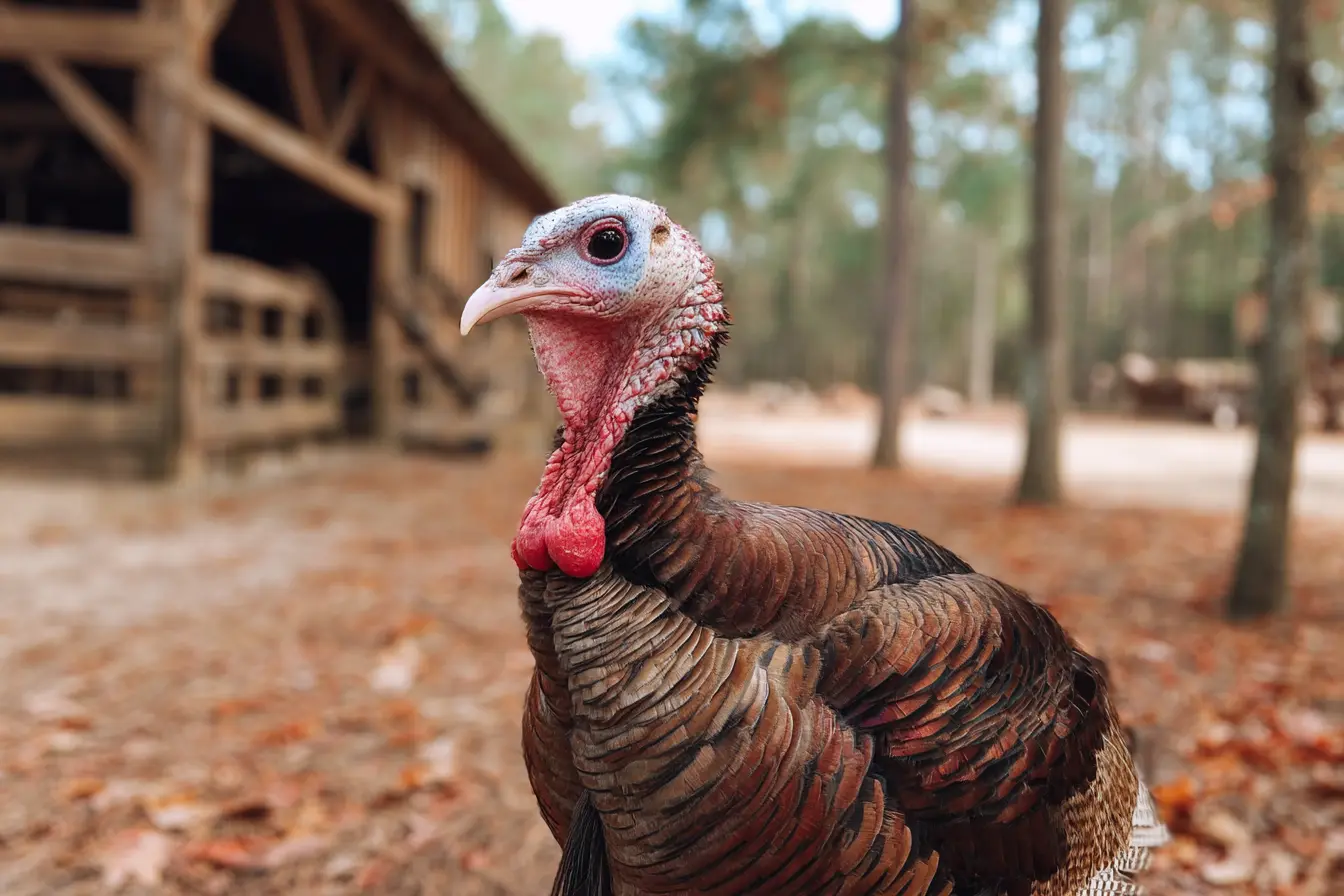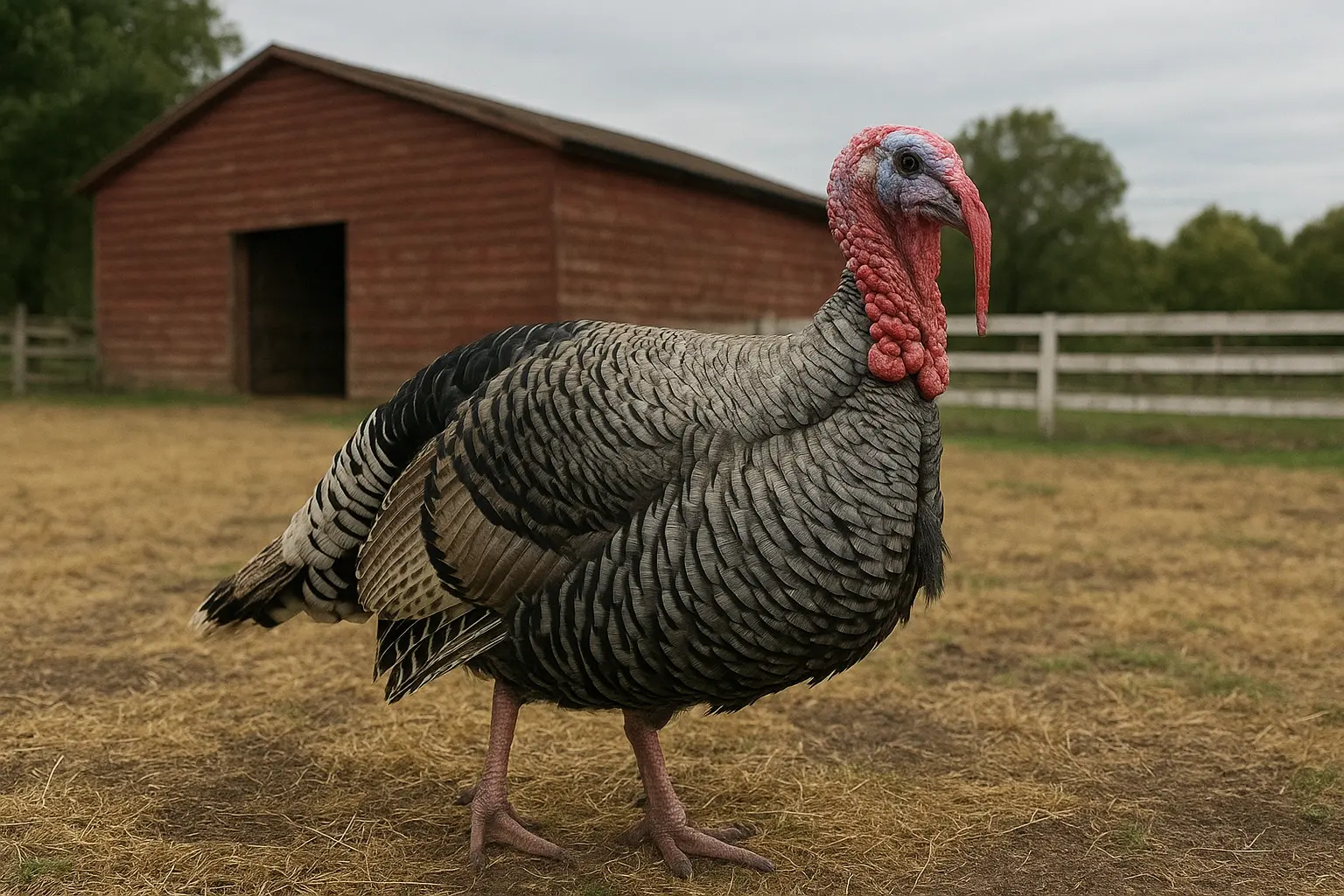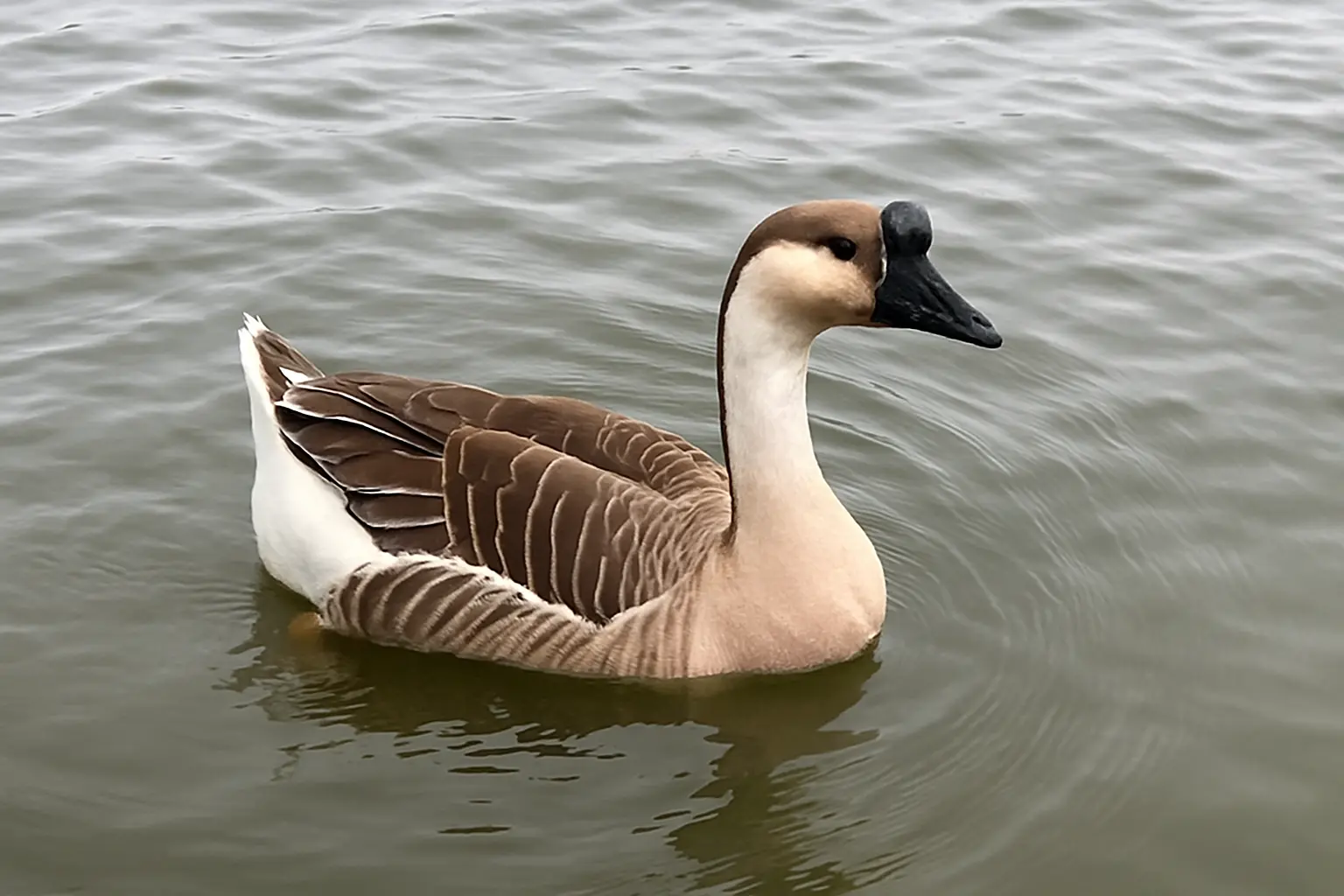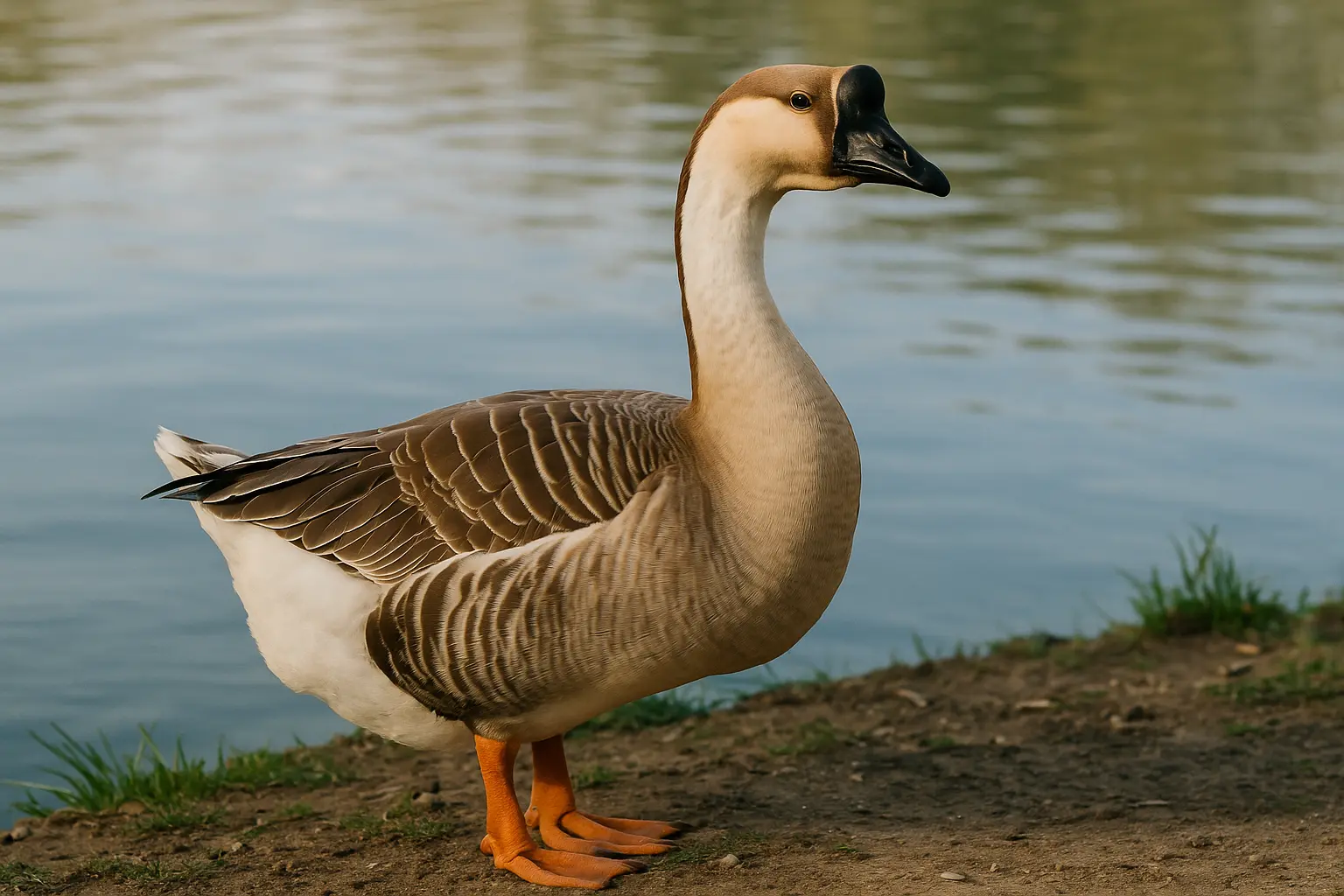
A Complete Guide to Keeping Toulouse Geese
Toulouse geese are a fantastic choice for poultry enthusiasts in the UK looking for a calm, friendly, and productive breed. Known for their large size, gentle temperament, and excellent foraging abilities, Toulouse geese are ideal for both smallholders and hobbyists alike.
This guide will cover everything potential owners need to know about keeping Toulouse geese, including housing, feeding, health, and general care.
Introduction to Toulouse Geese
The Toulouse goose originates from France and is named after the city of Toulouse. They are a heavy breed primarily kept for their meat, foie gras production, and as ornamental birds. Toulouse geese are known for their calm and friendly nature, making them an excellent choice for families and beginners.
Key Characteristics
- Lifespan: 10-20 years with proper care
- Size: Large (ganders weigh 9-11 kg; geese 7-9 kg)
- Temperament: Docile, calm, and friendly
- Appearance: Grey feathers with lighter underbellies, a dewlap (in some strains), and an orange bill and feet
- Egg Production: 20-50 large white eggs per year
- Hardiness: Adaptable to the UK climate but requires shelter in wet conditions
Why Choose Toulouse Geese?
Toulouse geese offer many benefits for keepers, making them an attractive breed for a variety of purposes:
- Gentle Temperament: They are friendly and easy to handle, making them great for beginners and families.
- Low Maintenance: They are hardy birds that require minimal intervention once settled.
- Excellent Grazers: They are efficient lawn mowers and help control weeds naturally.
- Dual-Purpose Breed: Ideal for both egg and meat production.
- Good Companions: Toulouse geese bond well with their keepers and other animals.
- Quiet and Non-Aggressive: Unlike some other breeds, they are relatively quiet and non-confrontational.
Housing Requirements for Toulouse Geese
Providing suitable housing is essential to keep Toulouse geese safe, healthy, and comfortable.
Shelter Requirements
- Size: Provide at least 1 square metre per goose inside the shelter.
- Bedding: Use straw, wood shavings, or hay to keep the shelter dry and comfortable.
- Ventilation: Ensure good airflow to prevent respiratory issues caused by damp conditions.
- Protection: Secure the shelter against predators such as foxes and rats.
- Access: Provide a wide, low entrance as geese prefer walking into their shelter rather than climbing.
Outdoor Space
Toulouse geese thrive when given plenty of outdoor space for grazing and exercise.
- Minimum Space: Allocate at least 20-30 square metres per goose for grazing.
- Fencing: Use fencing that is at least 90 cm high to keep them contained and safe.
- Water Access: Provide a pond, trough, or large shallow container for bathing and drinking.
Tip: Rotate grazing areas to prevent overgrazing and maintain healthy grass.
Feeding Your Toulouse Geese
A well-balanced diet is key to maintaining healthy geese and promoting good egg production.
Essential Nutrition
- Grazing: Toulouse geese thrive on fresh grass and should have access to pasture whenever possible.
- Waterfowl Pellets: Provide a nutritionally balanced commercial feed with 16-18% protein.
- Grains: Wheat, barley, and oats can be offered to supplement their diet.
- Fresh Vegetables: Leafy greens, lettuce, and cabbage can be given as occasional treats.
- Grit: Essential for digestion and grinding food in their gizzard.
- Fresh Water: Geese require clean, fresh water at all times for drinking and washing their food.
Feeding Tip: Avoid feeding bread and other processed foods, as they provide little nutritional value and can cause health issues.
Health and Common Concerns
Toulouse geese are generally hardy, but they do require routine health checks and preventative care.
Common Health Issues
- Wet Feather: Occurs if geese are unable to preen properly due to poor water quality.
- Bumblefoot: A bacterial infection of the foot pad caused by rough or dirty surfaces.
- Parasites: Regularly check for internal and external parasites such as worms and lice.
- Obesity: Due to their size, Toulouse geese are prone to weight-related issues; monitor their diet accordingly.
- Respiratory Issues: Ensure their housing is dry and well-ventilated to prevent respiratory infections.
Preventative Care: Regularly check their feet, eyes, and overall body condition to catch any health issues early.
Toulouse Goose Behaviour and Handling
Toulouse geese are known for their calm and sociable behaviour, making them enjoyable to keep.
- They form strong bonds with their keepers and enjoy human interaction.
- They are not aggressive but can become protective during the breeding season.
- Toulouse geese are relatively quiet compared to other breeds, making them suitable for suburban areas.
- They enjoy companionship and do best when kept in pairs or small flocks.
Handling Tip: Start handling goslings from a young age to build trust and familiarity.
Egg Production and Collection
Toulouse geese are seasonal layers and produce a modest number of eggs.
Egg-Laying Habits
- They typically start laying at around 9-12 months of age.
- Expect 20-50 eggs per year, mainly in spring and early summer.
- They may go broody and hatch their eggs naturally.
- Their eggs are large and rich in flavour, perfect for baking or eating fresh.
Egg Collection Tip: Provide secluded nesting areas with plenty of straw to encourage laying.
Winter Care for Toulouse Geese
Toulouse geese are well-suited to the UK's climate but require additional care during the winter months.
- Shelter Insulation: Provide extra bedding to keep them warm and comfortable.
- Water Supply: Prevent water sources from freezing by using heated waterers or regular checks.
- Increased Feeding: Offer additional food to help them maintain body heat.
- Foot Care: Ensure they have dry areas to stand on to prevent frostbite or infection.
Winter Tip: Avoid allowing geese to swim in icy water for extended periods to prevent health issues.
Breeding and Raising Goslings
If you’re considering breeding Toulouse geese, proper planning is essential.
Breeding Tips
- The breeding season starts in early spring.
- Provide a quiet nesting area with ample straw bedding.
- Geese typically lay around 8-12 eggs per clutch.
- Incubation lasts approximately 28-32 days, with the goose doing most of the brooding.
- Goslings require warmth, starter feed, and access to shallow water.
Growth Rate: Goslings grow rapidly and will start feathering within a few weeks.
Legal Considerations in the UK
Before keeping Toulouse geese, it’s important to be aware of relevant regulations and responsibilities.
- DEFRA Guidelines: Follow biosecurity measures to prevent avian diseases such as bird flu.
- Local Council Regulations: Check any restrictions regarding keeping geese in residential areas.
- Neighbour Considerations: Inform neighbours, as geese can be noisy during the breeding season.
Conclusion
Toulouse geese are a wonderful addition to any smallholding or backyard flock in the UK. Their friendly disposition, excellent grazing ability, and adaptability to the British climate make them an excellent choice for both beginners and experienced keepers.
By providing the right housing, nutrition, and care, your Toulouse geese will thrive and provide years of companionship and utility.
Contents
- Introduction to Toulouse Geese
- Why Choose Toulouse Geese?
- Housing Requirements for Toulouse Geese
- Feeding Your Toulouse Geese
- Health and Common Concerns
- Toulouse Goose Behaviour and Handling
- Egg Production and Collection
- Winter Care for Toulouse Geese
- Breeding and Raising Goslings
- Legal Considerations in the UK
- Conclusion
Tags
Vets near you
Speciality vets
- Aquatics vet specialists
- Birds vet specialists
- Camelids vet specialists
- Cats vet specialists
- Cattle vet specialists
- Deer vet specialists
- Dogs vet specialists
- Equines vet specialists
- Exotic vet specialists
- Goats vet specialists
- Pigs vet specialists
- Poultry vet specialists
- Sheep vet specialists
- Small Mammals vet specialists
- Wild vet specialists
Vet facilities
- Accessible by public transport
- Blood testing
- Car park nearby
- Client car park
- Dentistry
- Diagnostic imaging
- Disabled public access
- Flea and worm treatments
- Microchipping
- Mobile services
- Neutering
- Open at weekends
- Out-of-hours service
- Referral interests
- Referrals only
- Street parking outside
- Toilets available
- Vaccinations



